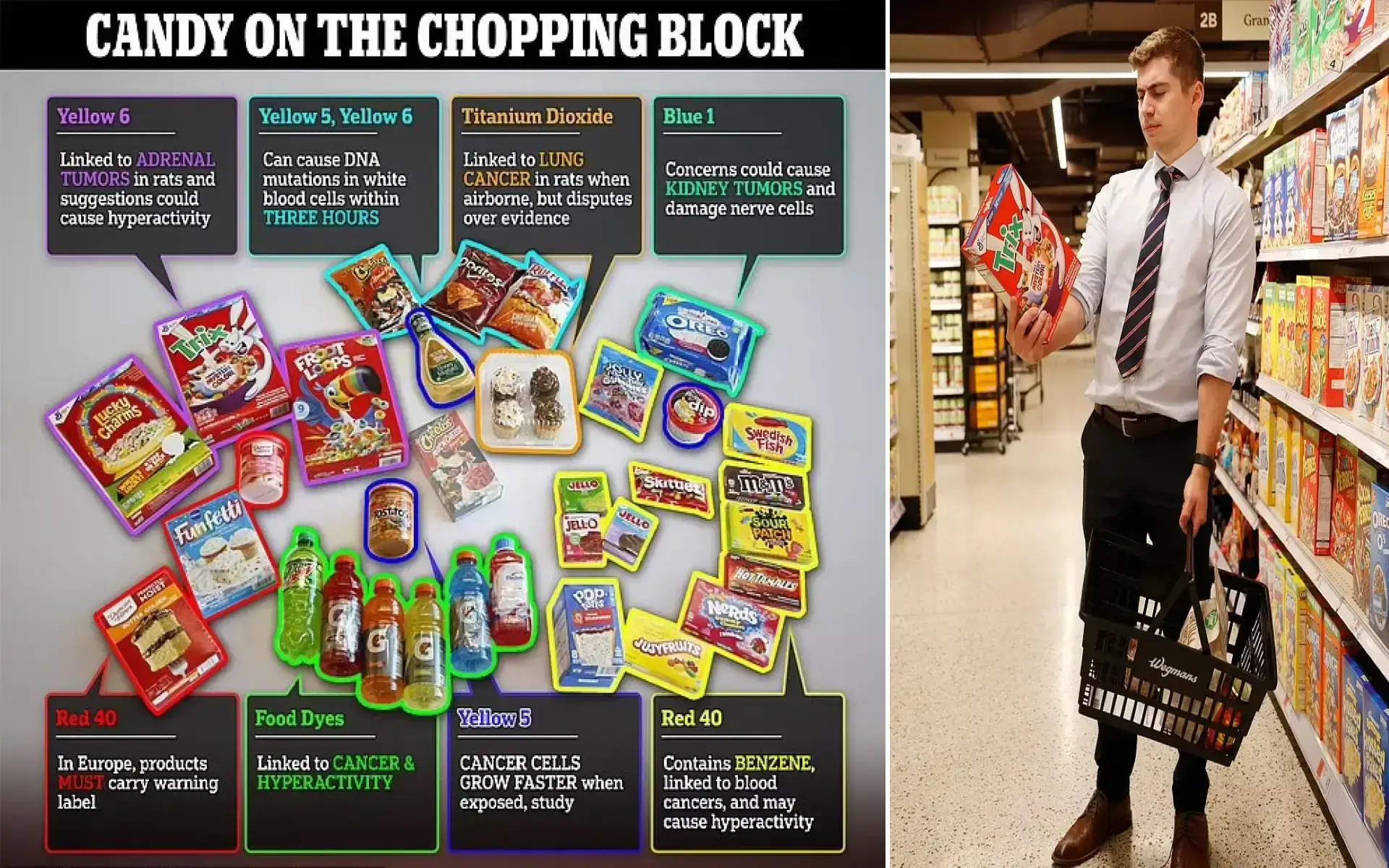The often brightly colored, sugar-packed snacks that we frequently enjoy might be on the brink of being outlawed in some regions of the United States. This stems from a growing concern over the potentially harmful chemicals they contain.
The list of targeted products runs the gamut from cereals like Lucky Charms and Froot Loops, to candies such as Skittles, Nerds, M&M’s, and Swedish Fish. Savory snacks like Flamin’ Hot Cheetos and Doritos are not exempt, and even popular beverages like Gatorade could be affected.
Many of the chemicals found in these products, such as brominated vegetable oil, potassium bromate, propylparaben, and red dye No. 3, are already prohibited in most of Europe due to their potential carcinogenic effects. Now, several US states are contemplating similar measures.
Potassium bromate, for example, is used to strengthen the texture of bread, but it’s also a known carcinogen in rats, and may cause kidney issues in humans. Brominated vegetable oil, which is used to help keep citrus from rising to the top in beverages, has a toxic effect on the thyroid. The ingredient was once used in Mountain Dew. This bill is set to go into effect in 2027, but only applies to California.
California was the first to take a stand, passing the so-called Skittles Ban in October, which prohibited the use of certain potentially carcinogenic food chemicals. This ban, however, is only applicable within California and is set to take effect in 2027.
In March, New York lawmakers introduced two bills aiming to protect its people from the harmful effects of these toxic food chemicals, the Environmental Working Group reported. The proposed bills seek to ban additional chemicals like titanium dioxide, BHA, and ADA, which are commonly found in certain bread products.
States such as Pennsylvania, Illinois, New Jersey, and Missouri are also considering bans on certain additives. Pennsylvania, in particular, is looking into the banning of colorings Red 40, Yellow 5, Yellow 6, Blue 1, and Blue 2.
A 2021 review from the California Environmental Protection Agency tied dyes to adverse behavior, which scientists believe is tied to how the dyes impact the brain’s dopamine, a neurotransmitter and hormone responsible for feelings of pleasure and reward.
These chemicals have been linked to hyperactivity and behavioral problems in children, cancer, harm to DNA, and damage to the nervous system. For instance, Yellow 5, Yellow 6, and Red 40 are known to contain benzene, which is linked to certain cancers.
The FDA proposed a federal ban on brominated vegetable oil in November due to its potential to damage the nervous system. Meanwhile, California is hoping to ban another chemical linked to hyperactivity, Green 3.
The bans aim to pressure companies into altering their recipes. In a press release, Brian Ronholm, director of food safety at Consumer Reports, stated, “When you combine the fact that they are linked to certain types of cancers [and] linked to behavioral difficulties, it really highlights the point that these are things that don’t belong in food because of the increased risk that it presents. That is the crux of the bill.”
The approach to banning certain chemicals is not uniform across states. While some states are advocating for bans, others like Indiana, Maryland, South Dakota, Washington, and West Virginia are trying to eliminate the bans on additives.




